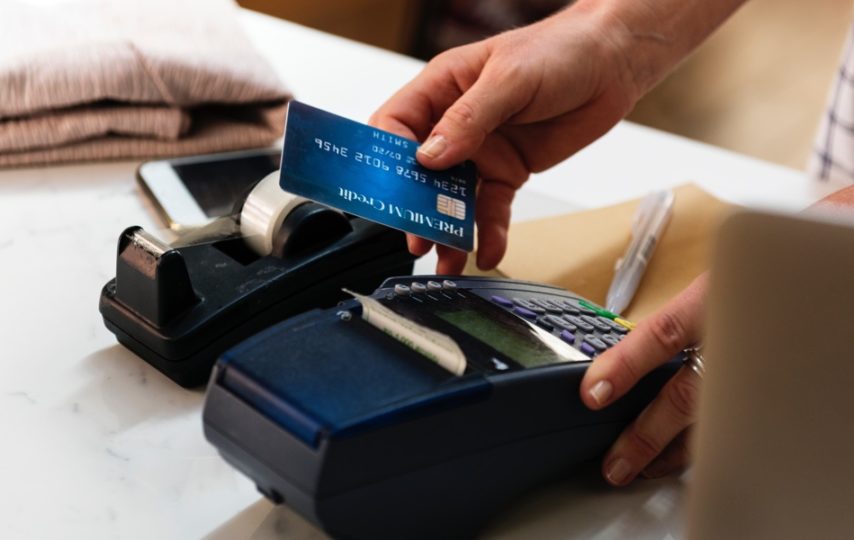Have you ever been caught in a merchant services scam and ended up burning a big hole in your pocket? Then you must have known how dreadful it was! But are you sure it won’t happen again? What steps did you take to avoid such drastic situations?
If you are a newbie or haven’t faced such scams yet, watch out for these top merchant services scams! Having the right knowledge will help you avoid them or take necessary actions to prevent significant damage if you fall prey to such malicious activities.
What are Merchant Services Scams?
Merchant services sales reps try to win businesses using a number of tactics, which are generally deceptive or malicious. For example, you may receive a weird and threatening call from a salesperson, who claims himself to be the representative of your current merchant services provider.
So, merchant account scams are made to fool businesses by convincing them to pay money on a deceptive or non-existent product or service.
Types of Merchant Services Scams
If you are looking for an affordable, honest and genuine merchant account services provider, avoid falling for these scams.
- Merchant Services Sales Call
There are many versions of these fraudulent merchant services sales calls, each stating that your merchant account charges have increased. As mentioned earlier, the caller will give you the illusion that s/he represents your current merchant services provider.
It may even be a pre-recorded sales call, and the mysterious person or on the other side may say that your pricing has increased and further says that if you don’t contact them, your price change will take effect!
Or, in another case, the caller may tell you that your merchant account services rates have been increased because you didn’t complete a rate reviewing process. The worst part is the call isn’t from your merchant services provider, and the person or company calling you doesn’t know anything about your current payment processing fees.
These recorded calls aim to scare you and convince you to call the person to learn the details. And merchants do call them back. After all, who wants to conform to an unwanted price increase?
But what needs to be noted here is your caller didn’t say the company s/he is representing. In fact, they don’t even know your current merchant services provider. Therefore, they avoid saying the name of their company even when you ask them directly.
When you call them back, they may ask you to switch your merchant account services provider and ask you to do some paperwork, such as filling up an updated application.
How to Avoid?
If you notice that the company keeps calling you and convince you by using different means to make you call them back or switch processors, never sign new contracts. And never complete any paperwork without reading it thoroughly or learning about all the terms and conditions.
Another mistake you need to avoid is confirming details about your current provider. The best thing would be to avoid these calls in the first place. However, if you do and end up calling them back, make the caller say the processor’s name you are currently working with.
Whenever in doubt, always call your actual merchant services provider to check if it was really them who called. Also, research about any merchant services provider if you really want to switch and beware of such fraudulent merchant scams.
- Hidden-Fee Scams
With some providers, you may find a deliberate lack of transparency, especially in terms of pricing structures. In this scam, a provider will give an unbelievably low rate for the services and then impose additional charges later quietly. Many merchants don’t even realize until the loss has already been incurred and reflected in the bank statements.
How to Avoid?
The red flag is what sounds too good to be true isn’t generally so “good!” Always ask for the full fee structure in writing. Ask them to provide a break up of all the charges and costs involved. You can even have a professional attorney read the contract and the terms mentioned.
- Backdoor Merchant Services Scams
In these types of scams, hackers edit a payment gateway’s source code to give a third party access to it through the “backdoor”! Such a compromised gateway will enable a malicious person to access your confidential debit or credit card information and even redirect the payments to a different account.
How to Avoid?
Complying with PCI security standards is a must for every business accepting online payments. Merchants also need to use more advanced data encryption technologies to safeguard consumers’ sensitive card and account details.
- Customer Scams
Apart from scams from fake companies, merchants also need to be aware of various customer scams that can be a costly affair for you. The common customer scams include –
- Stolen Cards
A stolen card scam can hurt a business badly. In this type, the thief steals a person’s credit card and causes serious damage, such as getting the bill for the purchases made from your retail store. In such cases, the liability generally falls on the bank.
However, it depends on the fraud type. The thief may also try to make an unauthorized purchase using the stolen card.
How to Avoid?
To avoid such scams, have proper documentation at hand. Also, to fulfill each of your purchases, the customer must be required to submit a unique PIN. And check out for any unusual purchases. Never give items to a doubtful person.
- Chargebacks
Chargebacks are a nightmare for merchants, especially those dealing with eCommerce purchases. However, it’s not always the fault of the merchants. Some customers use this as a scam by claiming that they haven’t received an item.
In this kind of credit card scam, a buyer who has indeed received the said item claims that s/he hasn’t received it from the retailer. In this case, s/he issues a chargeback with their credit card association, and the merchant loses both the money and the product.
How to Avoid?
Although credit card companies investigate chargeback claims, if you fail to show sufficient evidence and receipts, you may not win it. To avoid such scams, you can –
- Be aware of unusual orders.
- Implement strong credit card verification methods.
- Remind customers about recurring payments, such as monthly installments or subscriptions.
- Confirm all orders by sending automatic email or SMS notifications to the customer each time an order is placed.
- Implement signature confirmation on delivery and other shipment tracking methods.
- Use clear transaction descriptions, such as mentioning your company name and the product ordered. In this way, your customer won’t file a chargeback by mistake, thinking it’s an unknown or unrecognized payment.
- Define your return or replacement policy in clear and simple terms.
- Have document conversations and other recorded interactions at hand to combat chargeback fraud.













